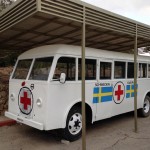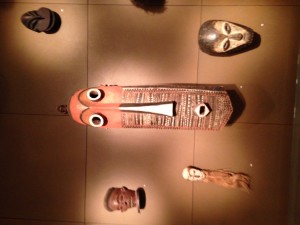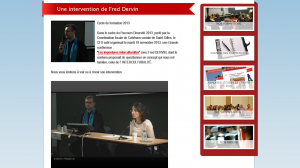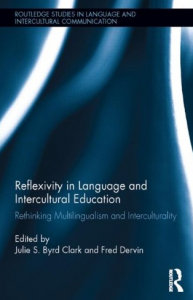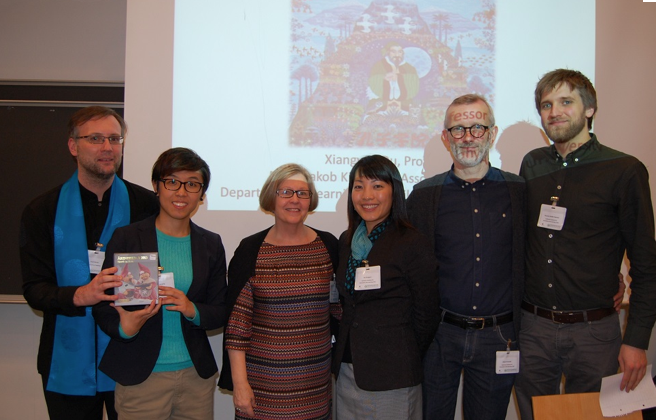Micro-agressions
Video of my last talk in Brussels (Oct. 2013) in French
http://ep.cfsasbl.be/spip.php?article214
The talk is based on my book Impostures interculturelles published in 2012.
Enjoy and Happy New year!
New article on intercultural Communication Education
“Turbulence in intercultural communication education (ICE): does it affect higher education?” has been published on Taylor & Francis Online. It is available at: http://www.tandfonline.com/doi/full/10.1080/14675986.2013.866935.
Fred Dervin & Céline Tournebise
Intercultural Education, vol 6, 2013
Abstract
This article examines a rather neglected context of intercultural education: intercultural communication education (ICE). ICE can be found in different fields such as business, applied linguistics, intercultural communication and health education, amongst others. The authors start by reviewing the latest and ongoing changes (‘turbulences’) in the way that ‘intercultural’ is conceptualized in this field and form a template for analysing a focus group with lecturers focusing on intercultural communication in the Nordic country of Finland. Our analysis shows that these practitioners, who are also researchers specialized in intercultural communication, share discourses about the importance of the ‘intercultural’ in education, but that they are unable to clearly position themselves within the existing polysemic definitions and approaches. The current turbulences seem to have very little coherent impact on the way they talk about the ‘intercultural’.
Cet article se penche sur un point quelque peu négligé de l’enseignement interculturel, soit l’enseignement de la communication interculturelle (ECI). On retrouve l’ECI dans de nombreux domaines comme les affaires, la linguistique appliquée, la communication interculturelle et l’éducation à la santé, entre autres. Nous allons passer en revue les derniers changements en cours («turbulences») dans la façon dont l’interculturel est conceptualisé dans ce domaine et dégager un modèle qui nous permettra d’analyser un groupe centré constitué d’enseignants de communication interculturelle en Finlande, pays du nord de l’Europe. Cet article est exploratoire et ne prétend pas traiter l’enseignement de la communication interculturelle dans son ensemble dans ce contexte, mais il entend montrer que ces praticiens, qui sont également des chercheurs spécialisés dans la communication interculturelle, partagent des discours sur l’importance de l’interculturel dans l’enseignement sans parvenir dans le même temps à se positionner clairement dans ses définitions polysémiques et ses différentes approches. Les turbulences actuelles semblent avoir un minimum d’impact cohérent sur la façon dont ils traitent l’interculturel.
Text from Bordeaux Conference on student mobility
19ème Université de la Formation de l’Éducation et de l’Orientation
Lundi 14 octobre et mardi 15 octobre 2013
Conférence de clôture par Fred Dervin
« Évaluer les apports interculturels des mobilités estudiantines »
2013 issue of IJE4D
The 2013 issue of the International Journal of Education for Diversities is available at:
“Where are you from?” A dangerous question
A year ago a very insensitive person kept asking me about my “real” identity at a project meeting dinner. The project deals with questions of identity and interculturality and I felt that it was rather ironical that this person was being so pushy – putting me in an embarrassing situation… Yesterday evening this sad episode came back to mind when I listened to this Ted Talk by Pico Lyer:
“More and more people worldwide are living in countries not considered their own. Writer Pico Iyer — who himself has three or four “origins” — meditates on the meaning of home, the joy of traveling and the serenity of standing still.”
Before asking about people’s origins, let’s find more original ways to approach them in their diverse diversities…
Online and Face-to-face Seminar on Learning Spaces for Inclusion and Social Justice 7.1.2014
New book coming soon!
Reflexivity in Language and Intercultural Education: Rethinking Multilingualism and Interculturality
Julie Byrd Clark & Fred Dervin (eds.). 2014. Routledge.
With the impact of accelerated globalization, digital technologies, mobility, and migration, the fields of Applied Linguistics, Language, and Intercultural Education have been shifting. One shift in need of further exploration is that of systematic and coherent reflexivity in researching language and culture. This unique and timely book thus examines the significance of reflexivity as an integral process, particularly when researching the multifaceted notions of multilingualism and interculturality in education. It also contributes to current critical approaches to representations of languages and cultures in identity politics. As such, the authors offer innovative ways of engaging with reflexivity in teaching, learning, and research through multimodal and complex ways. The chapters span a diverse range of educational settings in Asia, Australia, Europe, and North America.
Great conf. back in November
Back in November I was lucky enough to be a plenary speaker at a conference organized by my colleagues and friends from the Confucius Institute in Aalborg, Denmark. These guys are doing a great job!
“The Confucius Institute held an international conference from Wednesday 20 November to Friday 22 November 2013. The conference was a great success with nearly 70 participants, of which 24 were members of the Chinese Teachers Association in Denmark, 11 were researchers, staff and students from universities and 33 participants came from various CI’s in the Baltic-Nordic region. The conference key topic was Chinese language and culture teaching in a Danish (or non-Chinese) context. The aim was to generate ideas and develop new teaching practices that could give Chinese language and culture teachers new tools in their daily teaching lives. The conference’s keynote speakers Fred Dervin, Anja Lahtinen, Danping Wang, Mads Jakob Kirkebæk and Xiangyun Du gave valuable input to this.”
READ more HERE
(Click on photo to see everyone!)

